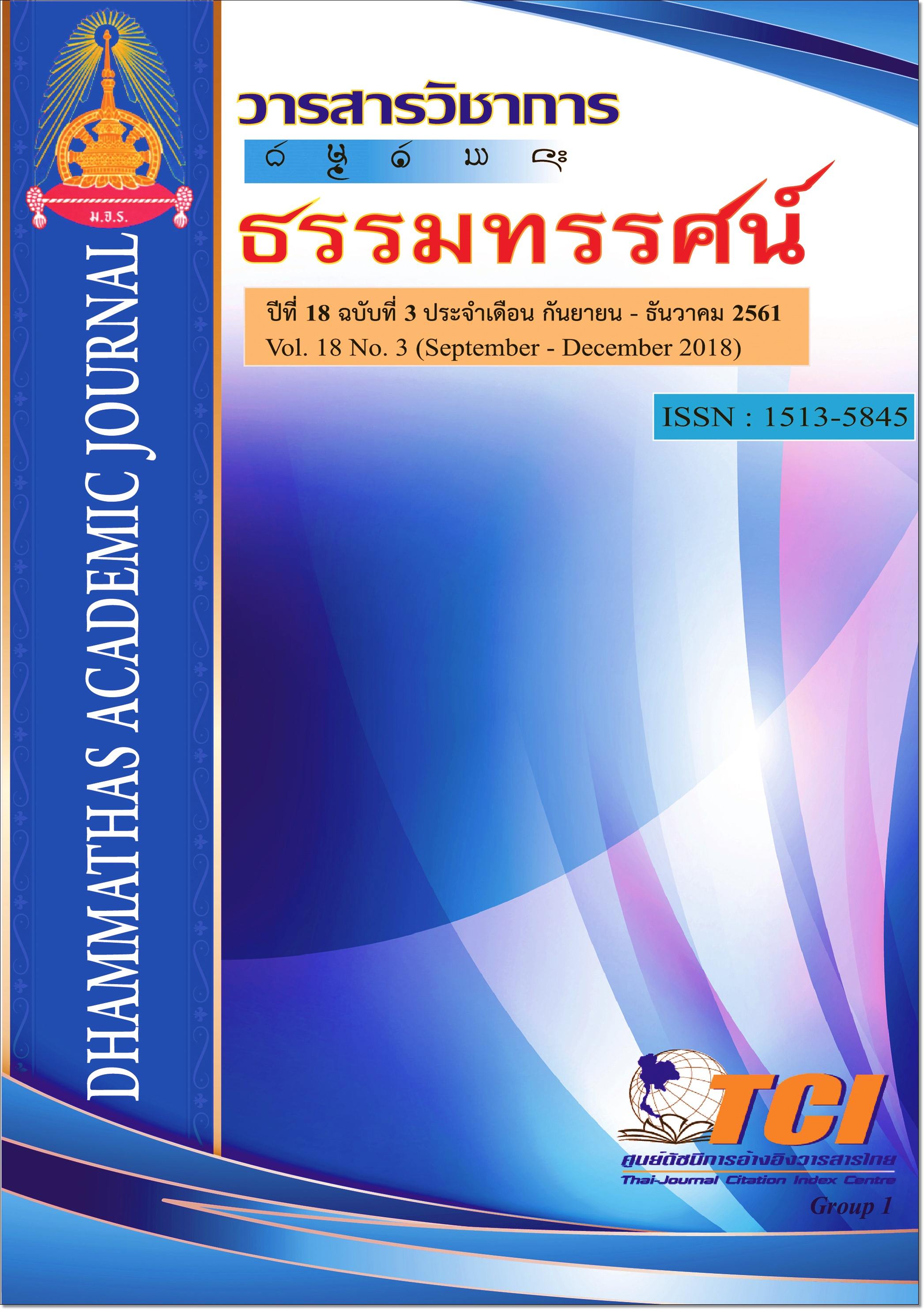An Approach for Promoting the Students’ Graduation in Doctor of Philosophy Program of Mahachulalongkornrajavidyalaya University
Main Article Content
Abstract
The aims of this research were 1) to study the problematic conditions of the students in Doctor of Philosophy program; 2) to study the concepts, theories and Buddhist principles for promoting success; 3) to study the ways for promoting the graduation of the students in Doctor of Philosophy program at Mahachulalongkornrajavidyalaya University. This study employed the qualitative research methodology by using an in-depth interview form to collect the required data from the target group’s informants: administrators, lecturers, staff and students. Finally, the obtained data were interpreted by the descriptive analysis.
The research results revealed that: there were two parts of the students’ problems: 1) student qualification such as irrelevance of their graduated fields, routine occupation, lack of research knowledge and motivation; 2) problems of the curriculums such as too many classes and the curriculum management system such as student recruitment, inadequate number of thesis supervisors and their over workload.
The concepts and theories in promoting the success included that of Skinner and Maslow; the Buddhist principle for creating the motivation for the success is IV Iddhipada (iddhipāda, path of accomplishment): 1) aspiration (chanda), energy (viriya), thoughtfulness (citta) and investigation (vīmaṁsā).
There are two ways to promote the success of the students: 1) the student promotion approach: the students who completed their former degree in the different fields must be trained and provided fundamental knowledge of their course; the students who were working needed to be motivated by using IV Iddhipada; those with the lack of research knowledge must be trained and those who lacked motivation must be cooperated and motivated by both instructors, learners and all stakeholders; 2) the ways to promoting the graduation of the students were to adjust the amount of subjects to suit the students; the curriculum management system must be relatively considered and improved from subject and activity arrangement, time table management, processes of learning and teaching, student recruitment; there should be the empirical evidences which can be reasonably explained to the educational assurance examiners; the thesis supervisors and students must have knowledge of systematic analysis, work, capacity for completing the course in time.

